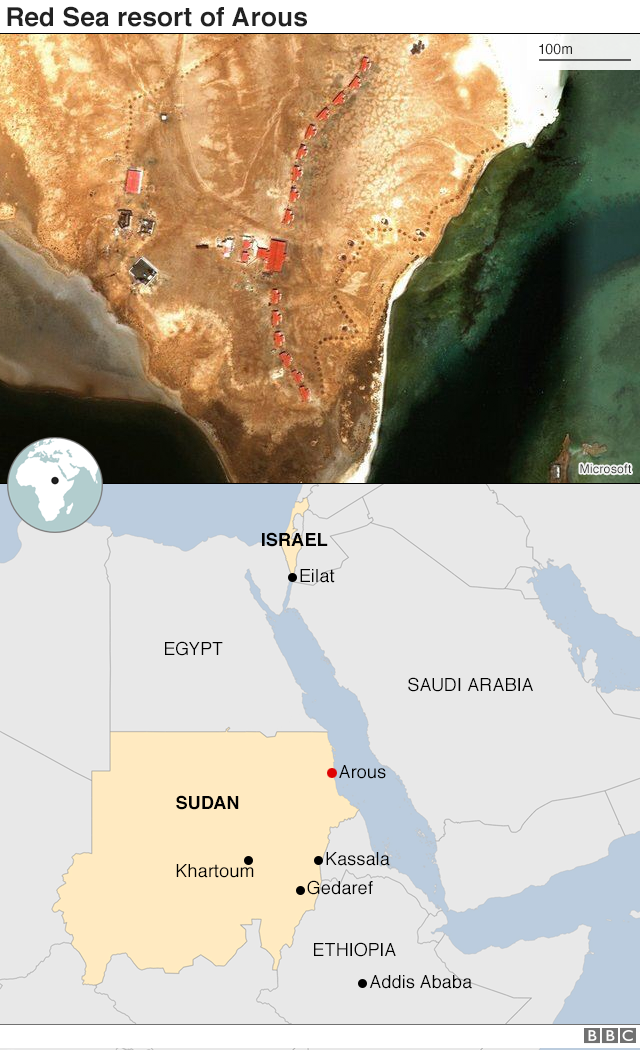Join Israel’s secret spy agency! Learn all the tricks of espionage! Run an exotic beachside resort! Wait, what?
“Arous on the Red Sea, a wonderful world apart,” the glossy brochure says, pronouncing it “the diving and desert recreation centre of Sudan”
Illustrated with pictures of putty-coloured chalets on a sun-drenched beach, a smiling couple in scuba gear, and varieties of exotic fish, the advertisement boasts of “some of the best, clearest water in the world”. As night falls – “after the landscape colours have paled” – there are, it says, “breathtaking views of the heavens, aflame with millions of stars”.
Arous Village, on the fringe of spectacular coral reefs and the odd shipwreck, appears to be a diving enthusiast’s dream.
[…]
The only thing was, unbeknown to the guests or the authorities, the Red Sea diving resort was entirely fake.
It was a front, set up and run for more than four years in the early 1980s by operatives from the Mossad, Israel’s intelligence agency.
They used it as a cover for an extraordinary humanitarian mission – to rescue thousands of beleaguered Ethiopian Jews stranded in refugee camps in Sudan and evacuate them to Israel. Sudan was an enemy Arab country, and it had to be done without anyone finding out, either there or at home.
“It was a state secret, nobody talked about it,” says Gad Shimron, one of the agents who served at the village. “Even my family didn’t know.”
“For us it was a godsend. If we could get hold of this place and do it up, we could say we’re running a diving village, which would give us a reason for being in Sudan and furthermore for roaming around near the beach.”
What happened next is the subject of a soon-to be released Hollywood film called Red Sea Diving Resort. Filmed in Namibia and South Africa, it tells the story of the operation and the village. Though while it is based on true events, some of the scenes are fictitious.
[…]
While seeing to their guests by day, every so often at night a squad would leave under cover of darkness and head to a rendezvous point 10km (six miles) south of Gedaref.
“We’d tell the staff we’re going to Khartoum for a few days, or to meet some Swedish nurses from the hospital in Kassala,” says Gad.
They would pick up groups of Ethiopian Jews, smuggled out of the camps by so-called Committee Men – a handful of Beta Israelis recruited for the job.
“The Ethiopian Jews were given no notice, as we could not risk word getting out,” says Gad. “They did not even know we were Israelis. We told them we were mercenaries.”
From there, a convoy of lorries carrying dozens of bewildered refugees drove a two-day – 800km – journey, evading detection at numerous checkpoints along the way by a combination of guile, bribery and occasionally ramming their way through.
At breaks, they would try to pacify the frightened passengers.
“When we let them sit in the driver’s cabin and touch the wheel, they were in seventh heaven,” Gad says, in his book Mossad Exodus. “It was amazing to see how happy they were at sharing a piece of chewing gum among 20 children. They looked at us as though we were creatures from outer space.”
When they got to the beach, north of the holiday village, Israeli navy special forces would come ashore on Zodiac dinghies, collect the refugees and transport them a further hour and a half to a waiting naval vessel, the INS Bat Galim.
The ship then took them to Israel.




